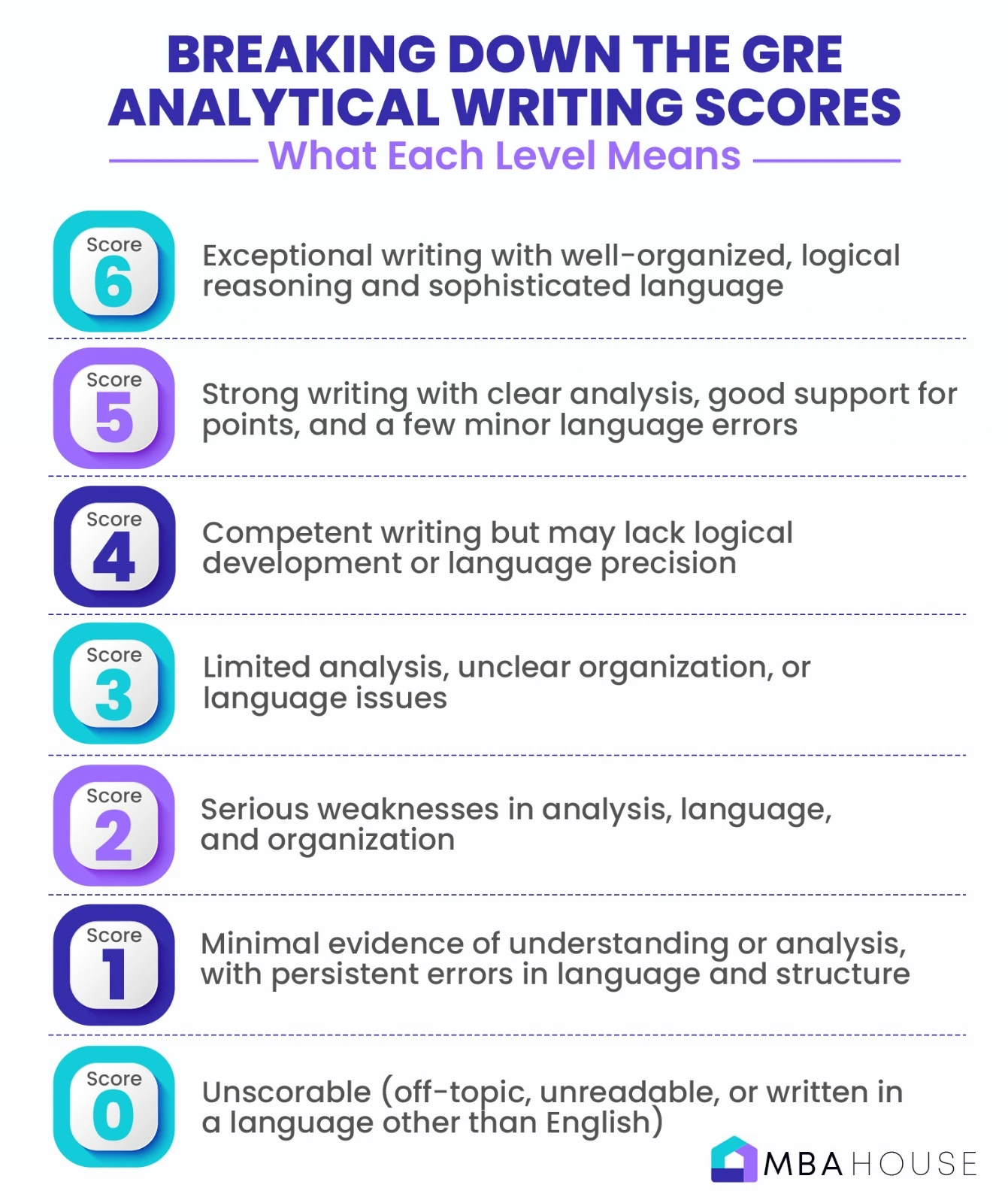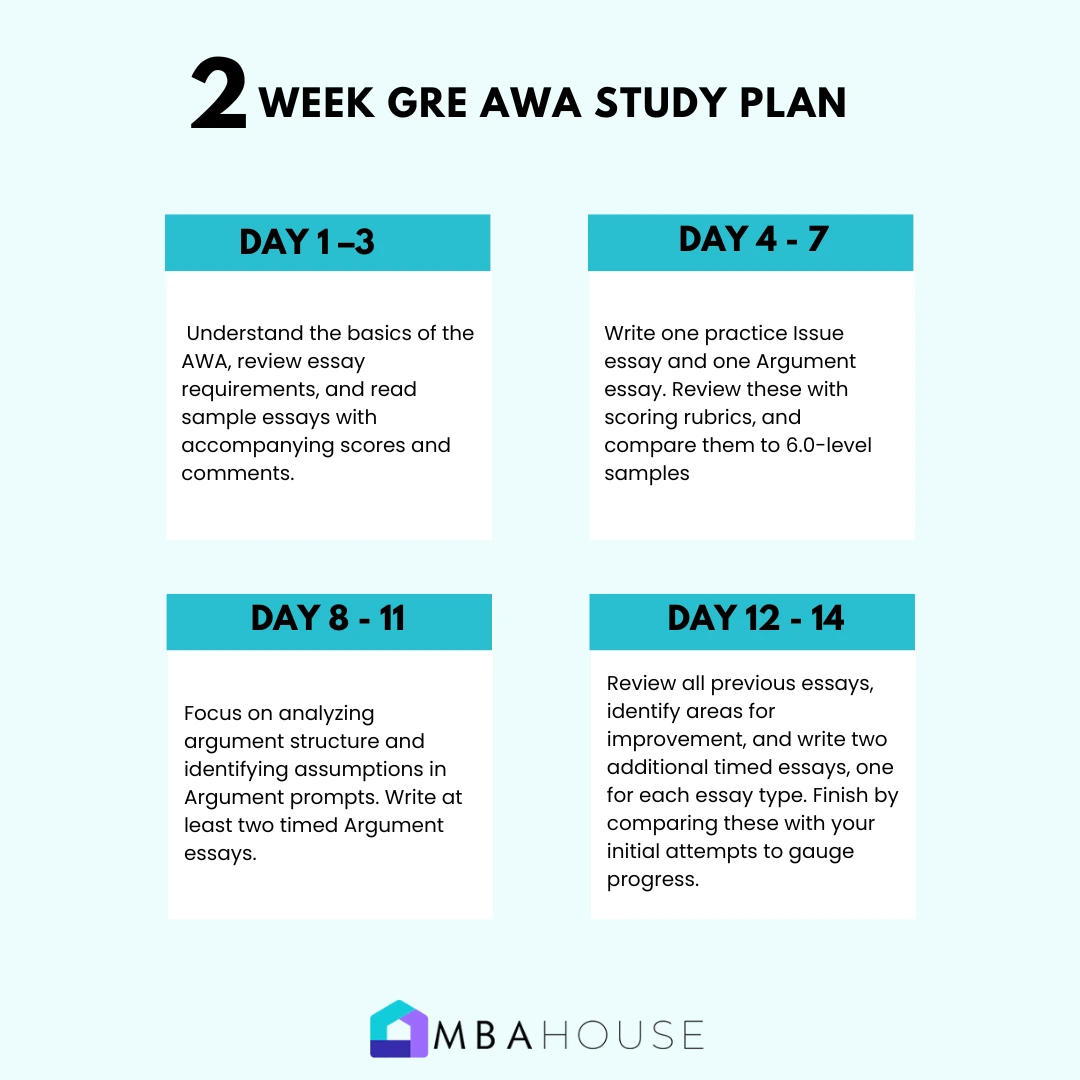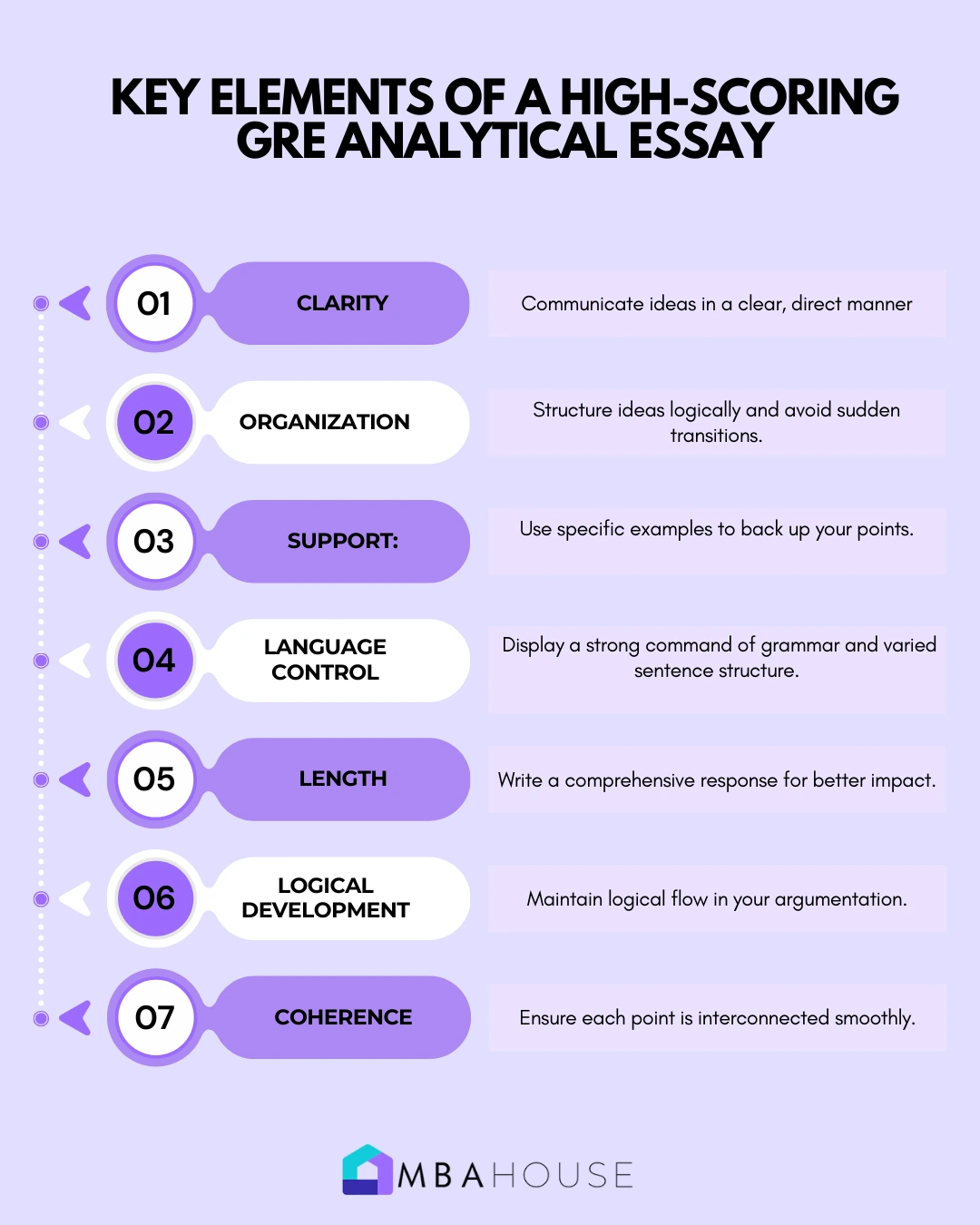The GRE Analytical Writing section often feels like a mystery to many test-takers. It’s common to wonder: How important is this section really? How can I maximize my score?
Unlike Verbal and Quant, which are filled with equations and vocabulary, Analytical Writing demands that you express clear, organized, and logical thoughts. Many students tend to overlook it, thinking it requires minimal effort. But the truth? A solid GRE Analytical Writing score can make a difference in how admissions committees perceive your application, especially if they see a gap in your writing abilities.
In this guide, we’ll dive into every detail of GRE Analytical Writing—from what to expect on test day, to GRE analytical writing tips that can help you stand out.
By the end, you’ll be equipped with the knowledge and strategies needed to master this section.
| If you’re feeling a bit pressed for time as the GRE gets closer, you’re not alone! It’s the final stretch, and you probably feel a mix of nerves and determination. Those long nights of practice, skipping your favorite shows, and sacrificing your usual hobbies—all leading up to this moment. For some extra guidance in those last few days, check out our blog on 20+ Practical Last Minute GRE Study Tips. It’s packed with strategies and tips to give you that final boost as you head into the test. |
What is GRE Analytical Writing?
The Analytical Writing Assessment (AWA) on the GRE includes two essays: the “Analysis of an Issue” and the “Analysis of an Argument.” You’ll need to complete both essays within a strict time limit, which can feel challenging without a solid plan in place.
The Structure of GRE Analytical Writing
Each essay serves a unique purpose:
- Analysis of an Issue: This prompt asks you to express your opinion on a topic, backing up your points with clear reasoning.
- Analysis of an Argument: Here, you’ll evaluate an argument’s logic, identifying strengths and weaknesses without injecting your personal views.
Each essay has a time limit of 30 minutes, so it’s essential to manage your time effectively.
Why GRE Analytical Writing Matters
Though GRE Writing may not be as heavily weighted as the Verbal and Quantitative sections, scoring too low can raise red flags. Graduate programs look to ensure applicants can communicate ideas effectively—a skill often assessed through your GRE Analytical Writing score.
What Matters in GRE Analytical Writing
The GRE analytical writing scoring system ranges from 0 to 6 in half-point increments. Your essays are scored by two readers, with a third reader brought in if the initial scores differ by more than one point. To give you a better idea, here’s what each score level generally means:

How to Prepare for GRE Analytical Writing
Step 1: Understand Common Prompts
Each GRE test includes standard prompts that ETS releases in advance. Reviewing GRE analytical writing prompts can help familiarize you with likely topics and common structures.
Step 2: Practice with a Timer
When practicing, it’s vital to write within the 30-minute time frame. This limits the tendency to overthink, helps you focus on organizing ideas quickly, and ensures your pacing is realistic for test day.
Step 3: Review High-Scoring GRE Sample Analytical Writing Responses
Examining high-scoring gre sample analytical writing responses provides insights into effective strategies. These essays demonstrate strong structure, clear argumentation, and effective use of examples—qualities that your writing should emulate.
Step 4: Refine Your Writing Skills
The AWA section evaluates your ability to communicate ideas clearly. Practice rewriting essays with a focus on eliminating vague or complex sentences, using active voice, and improving flow. Incorporating gre analytical writing tips into each draft will make a noticeable difference.
Creating Your Ideal Study Plan

A structured study plan for the AWA can set you up for success. Here’s a sample breakdown for efficient AWA prep over two weeks:
- Day 1–3: Understand the basics of the AWA, review essay requirements, and read sample essays with accompanying scores and comments.
- Day 4–7: Write one practice Issue essay and one Argument essay. Review these with scoring rubrics, and compare them to 6.0-level samples.
- Day 8–11: Focus on analyzing argument structure and identifying assumptions in Argument prompts. Write at least two timed Argument essays.
- Day 12–14: Review all previous essays, identify areas for improvement, and write two additional timed essays, one for each essay type. Finish by comparing these with your initial attempts to gauge progress.
Mastering the Issue Task
The Issue task requires you to construct a compelling argument around a prompt, expressing and supporting your viewpoint with clarity. While it may feel like a free-form opinion essay, success on this task depends on how effectively you can defend your viewpoint within a logical structure.
Sample Outline of an Issue Essay
- Introduction
Begin with a hook that frames your position on the issue. Clearly state your thesis, outlining the main points you’ll address in support of your stance. - Body Paragraphs
Each body paragraph should develop a single point supporting your thesis. Use specific examples and logical reasoning to make your argument compelling. Stick to 2–3 strong points rather than overloading the reader with numerous, underdeveloped ideas. - Conclusion
Summarize your position, emphasizing the key takeaways from your argument. A concise and reaffirming conclusion helps leave a strong impression.
Common Pitfalls and How to Avoid Them
- Overgeneralization: Avoid sweeping statements or clichés. Stick to specific points backed by clear examples.
- Repetition: Each paragraph should introduce new ideas or evidence. Repeating arguments weakens your essay.
- Lack of Transitions: Smooth transitions between points improve readability and flow. Use transitional phrases to clarify connections between ideas.
Example and Analysis of a Perfect 6.0 Issue EssayPrompt: Sample Essay Summary: Analysis: |
Excelling at the Argument Task
Unlike the Issue essay, the Argument task does not ask for your opinion. Instead, you’ll analyze an argument presented in the prompt, critiquing its structure, logic, and assumptions.
Step-by-Step Approach to the Argument Task
- Identify the Argument’s Conclusion and Premises
Start by locating the argument’s main claim (conclusion) and the evidence provided to support it (premises). - Evaluate Assumptions
Most Argument prompts contain assumptions that weaken the argument. Recognize these assumptions, as they will be the foundation of your critique. - Identify Flaws and Suggest Improvements
Point out logical fallacies, weak evidence, or unstated assumptions that could be challenged. Additionally, suggest ways the argument could be strengthened if additional evidence or reasoning were provided.
Tips for a 6.0 Argument Essay
- Stay Objective: Avoid adding your own opinions. Focus on critiquing the argument based solely on its logic and structure.
- Be Concise: Precision is key in the Argument task. Get to the point quickly and clearly, without unnecessary embellishments.
- Use Clear, Specific Language: Directly state assumptions and flaws, and avoid ambiguous phrasing.
Sample Outline for the Argument Task
- Introduction: Briefly restate the argument and acknowledge its claim.
- Body Paragraphs: Analyze each major assumption, flaw, or unsupported claim.
- Conclusion: Summarize the weaknesses and suggest how the argument could be improved.
|
Key Elements of a High-Scoring Analytical Essay

To achieve a top score, graders look for seven main elements:
- Clarity: Communicate ideas in a clear, direct manner.
- Organization: Structure ideas logically and avoid sudden transitions.
- Support: Use specific examples to back up your points.
- Language Control: Display a strong command of grammar and varied sentence structure.
- Length: While not the only factor, a comprehensive response often performs better.
- Logical Development: Maintain logical flow in argumentation without gaps.
- Coherence: Ensure each point is interconnected smoothly.
Conclusion
Mastering GRE Analytical Writing doesn’t require months of intense study; it just needs a focused, strategic approach. With a clear understanding of the analytical writing assessment GRE, and by practicing the steps and tips outlined above, you’re well on your way to achieving a high score.
Embrace each writing prompt as an opportunity to showcase your reasoning skills and remember that effective preparation is the best route to reaching your goals. Now that you know what’s expected, it’s time to start practicing and work towards a confident, well-prepared test day!
If you’re looking for trusted GRE study courses, MBA House is here to help. Since 2006, we’ve been guiding students to gain admission to the top 25 MBA programs worldwide. With over 2,000 successful students and $90 million in scholarships awarded, our Ivy League-trained tutors are dedicated to giving you the skills and confidence you need to secure admission to your dream MBA program.
Reach out to us today at [email protected]. We’re here to help you achieve your MBA goals efficiently and effectively.
FAQs
Q: How is the GRE Analytical Writing section scored?
A: Your essays are graded by two readers on a scale of 0-6. If the scores differ by more than one point, a third reader evaluates the essays, with the final score averaged.
Q: How can I improve my GRE Analytical Writing score?
A: Focus on practicing within the time limit, reviewing high-scoring essays, and refining your organization and clarity. Consistency in quality writing is key.
Q: How important is my GRE Analytical Writing score for admissions?
A: While it’s less crucial than the Verbal and Quant scores, a strong Analytical Writing score can enhance your application by demonstrating effective communication skills.
Q: Do I need to memorize prompts?
A: No, but reviewing prompts can familiarize you with typical question formats, helping you feel more prepared on test day.





Social Media